
10 Dec, 2016
“Halal Route” app launched in Thailand to facilitate Muslim travellers
Bangkok – The positioning of Thailand as a Muslim-friendly destination has taken another step forward with the launch of a Halal Route app designed to help Muslim business and leisure travellers find tourism products and services suited to their religious and cultural requirements.
The app, which can be downloaded here http://halalroute.in.th/, was unveiled at the Thailand Halal Assembly 2016, an annual event organised by the Halal Science Centre of Chulalongkorn University in cooperation with the Central Islamic Council of Thailand and the Halal Standard Institute of Thailand.
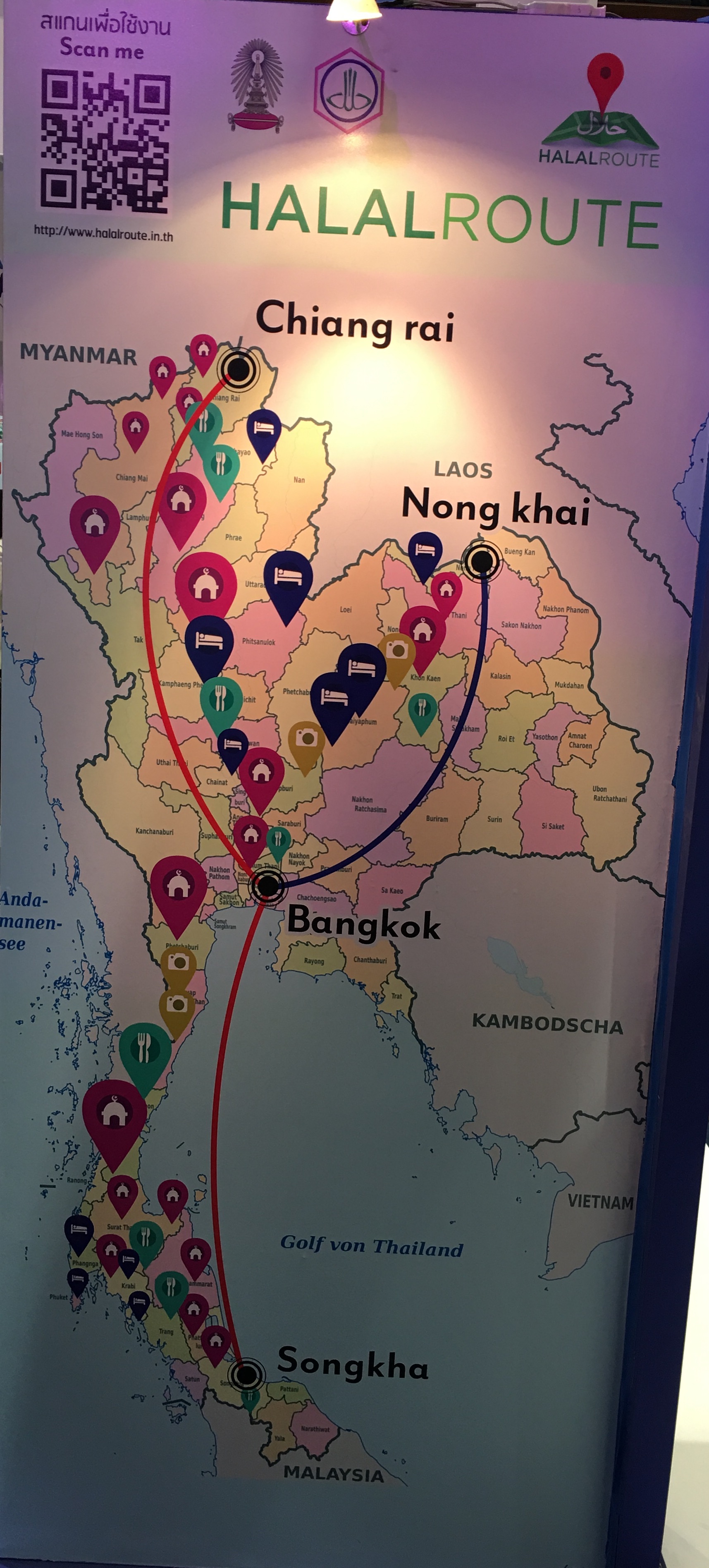
Created by the Halal Science Centre, the Halal Route app will complement the efforts being made by the Tourism Authority of Thailand to publicise Muslim-friendly products and services in Thailand.
In 2015, the TAT launched a strategy to promote Thailand as a Muslim-friendly destination, and introduced an app to help Muslim travellers easily find mosques, restaurants, hotels, Muslim communities and so on.
The Halal Route takes that a step forward by combining the Muslim-friendly products and services into tour itineraries.
One route runs from Sadao district in the southern province of Songkhla to the district of Mae Sai in the Northern Province of Chiang Rai; and the other runs from Bangkok to Nong khai province in North East Thailand.
The initial release is only in Thai, designed for domestic travellers. The next stage is to have it translated into English and Malay/Indonesian.
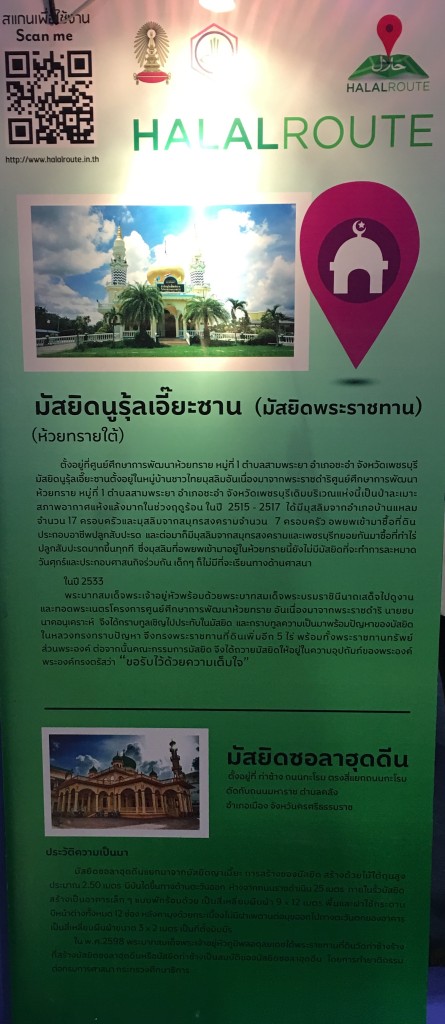
An official announcement by the Halal Science Centre notes that the dawn of the ASEAN Economic community will boost intra-regional people movement for both business and pleasure. Low-cost airlines and easier booking facilities and competition amongst the hotel sector will make travel even easier.
It says that as more than half of ASEAN populations in AEC countries are Muslim, there is a clear opportunity for Thailand to capitalise on its advantage as a well-known tourist destination and attract more Muslim travellers, especially the young generation.
This will also help create jobs nationwide and enhance the socio-cultural integration of the Thai-Muslim population which is distributed all over the Kingdom.
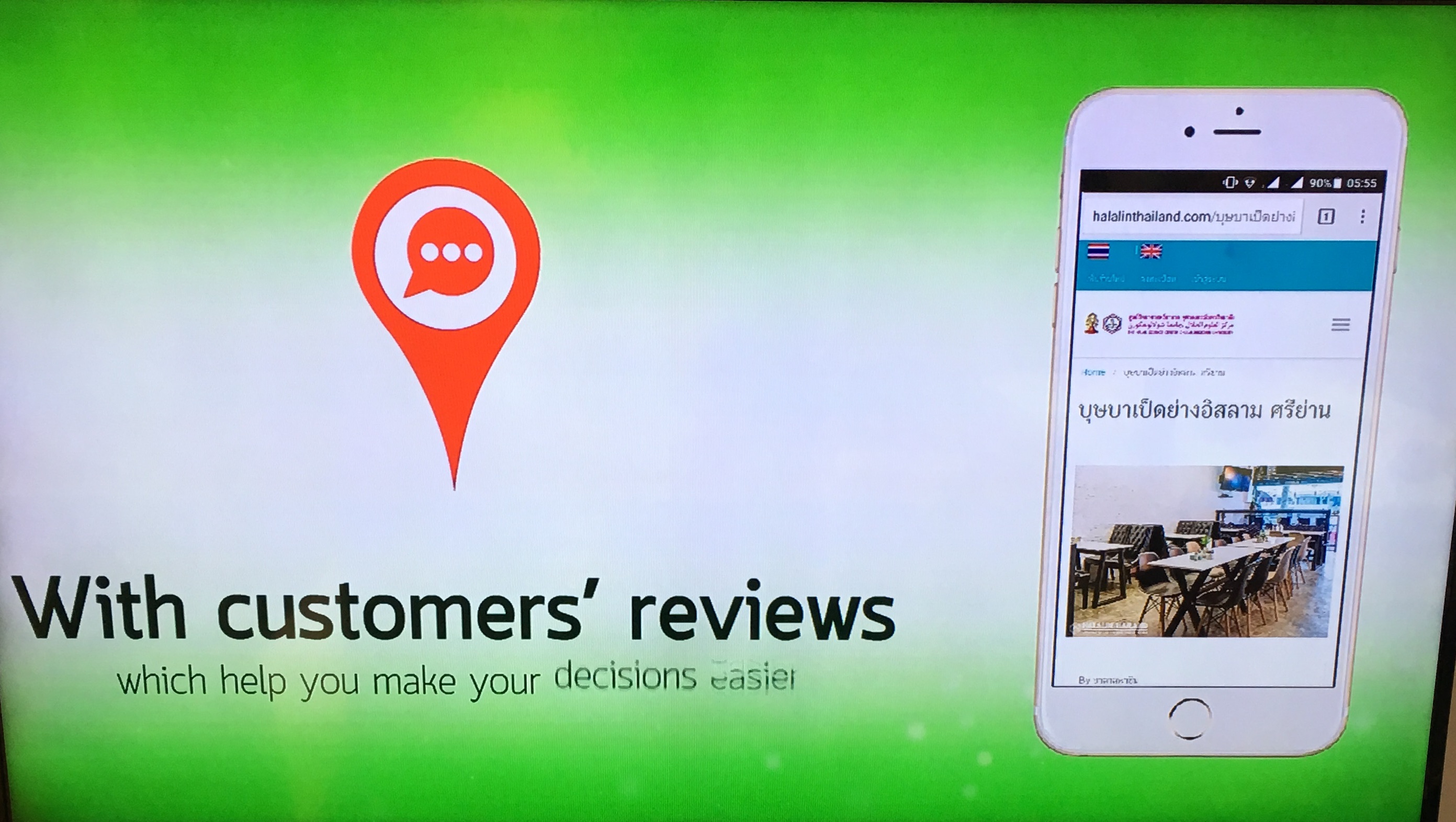 |
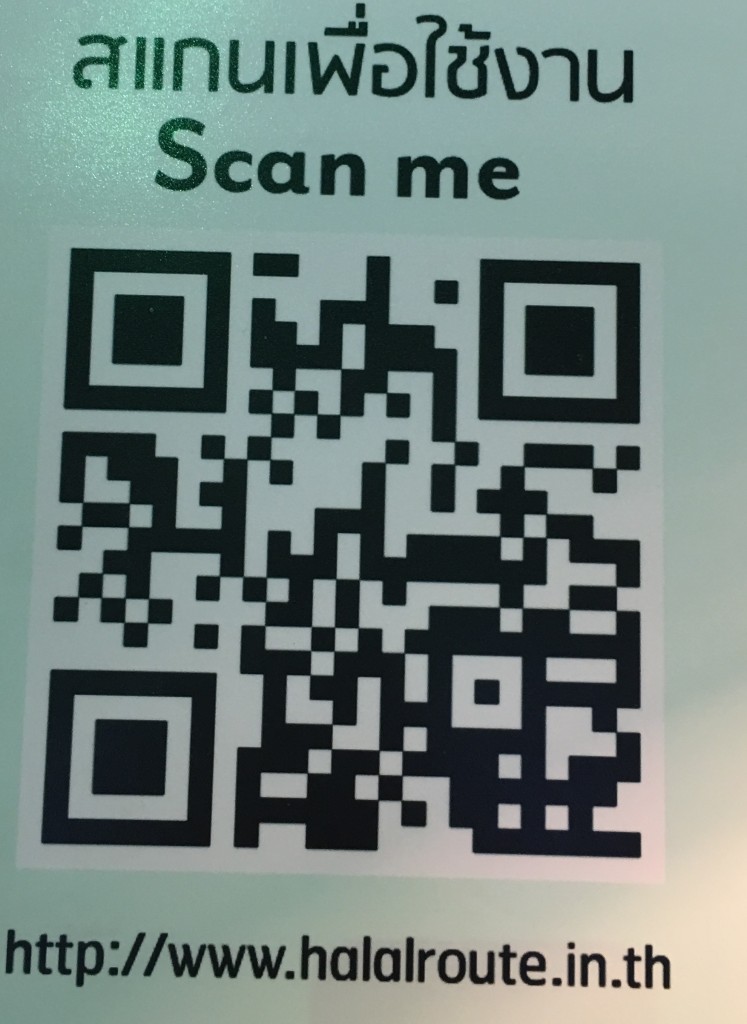 |
Tourism is one of the primary economic sectors being promoted at the three-day Halal Assembly as a source of job creation and income distribution under the Thailand 4.0 development strategy.
For the first time, the Assembly includes a special workshop in collaboration with the Tourism Authority of Thailand. The programme lists the TAT Governor scheduled to deliver a keynote address on the TAT’s Muslim Friendly Destination strategy on Dec 11.
The tourism session, to be moderated Mr. Asad Sajjad, CEO, International Halal Center UAE (IHC), will feature presentations by Assoc. Prof. Dr. Pakorn Priyakorn, Director, Halal Standard Institute of Thailand (HSIT) on “Preparation of Standards and Guidelines on Thailand Muslim friendly hospitality and Tourism,”; Imtiaz Muqbil, Executive Editor of Travel Impact Newswire and Islamic Travel Newswire on “Critical Success Factors in Moving Thailand Towards Muslim Friendly Destination”; and Mr. Rushdi Siddiqui, CEO, ZILZER, USA, on Steering Thailand towards Crescent Master in Global Muslim Travel Index.”
After the discussion, a Special Workshop is scheduled in collaboration with TAT to brainstorm ways to advance the Muslim-friendly strategy.
The trade show component of the Halal Assembly includes exhibits by the southern province of Krabi province which has a large Muslim population and is one of the fastest growing tourism island resorts. Private sector tourism exhibitors include two of Thailand’s best-known Muslim-friendly hotels, the Nuovo and Al-Meroz.
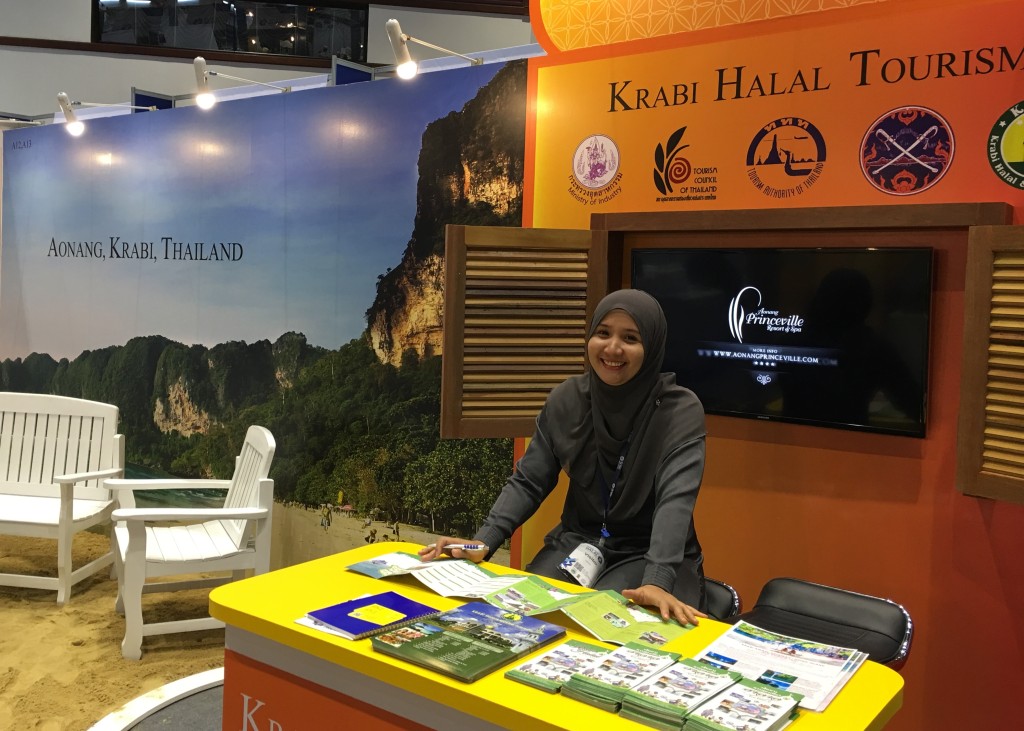
Krabi is the only province exhibiting at the Thailand Halal Assembly.
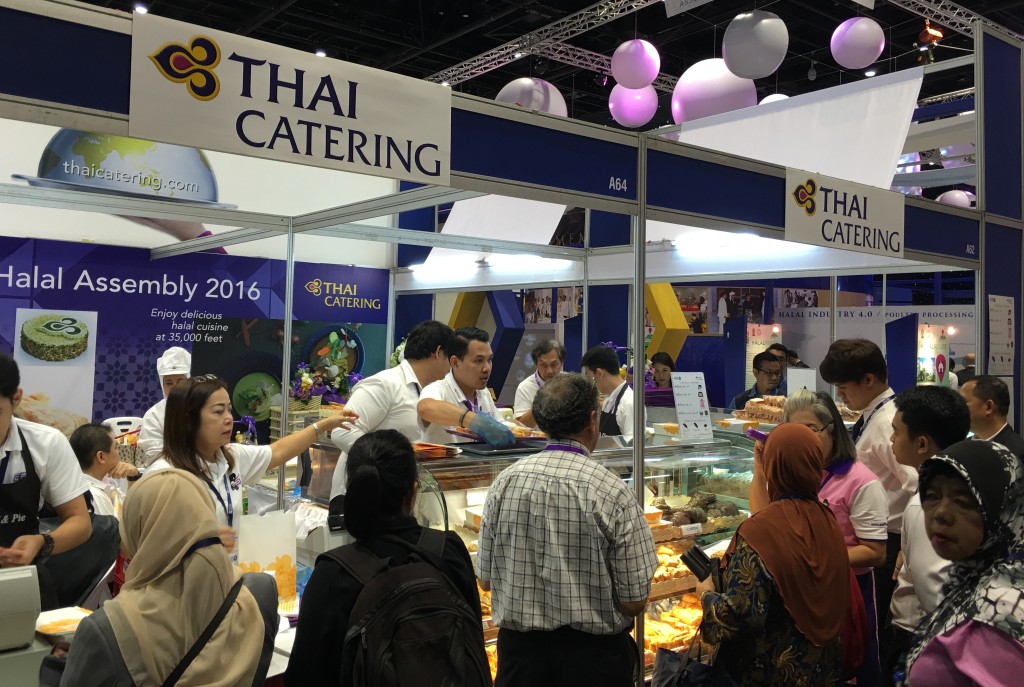
The Thai Airways International stand is always very popular.
This year, the event has attracted 350 exhibitors, including 120 from abroad. Most of the products are food & beverage companies along with a large range of fashion items, organic and herbal products and accessories such as prayer mats.
The Halal Assembly is strongly supported by numerous Thai government agencies involved with financing, export promotion, education and training, and marketing.
The Halal Route sends a strong signal to neighbouring Myanmar and differentiates the contrasting policies being pursued by the two Buddhist-majority neighbouring ASEAN countries. While Myanmar is being skewered in the global media for what amounts to an ethnic-cleansing policy against its Muslim Rohingyas, the Thais are working to better integrate their Muslim minority.
Adopting the same successful strategy that ended the communist insurgency in the 1970s, the Thai government also believes that creating jobs and economic opportunities will dilute the appeal of extremist separatists in Southern Thailand and allow the young people to focus their energies on more productive commercial activities.
Further information: www.thailandhalalassembly.com



Liked this article? Share it!